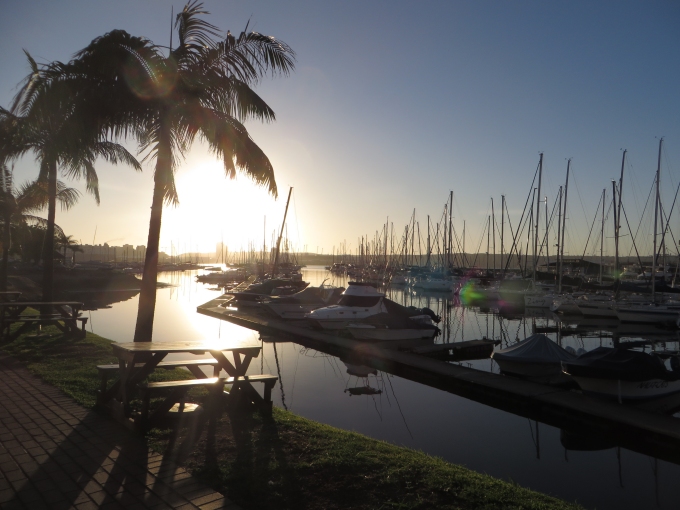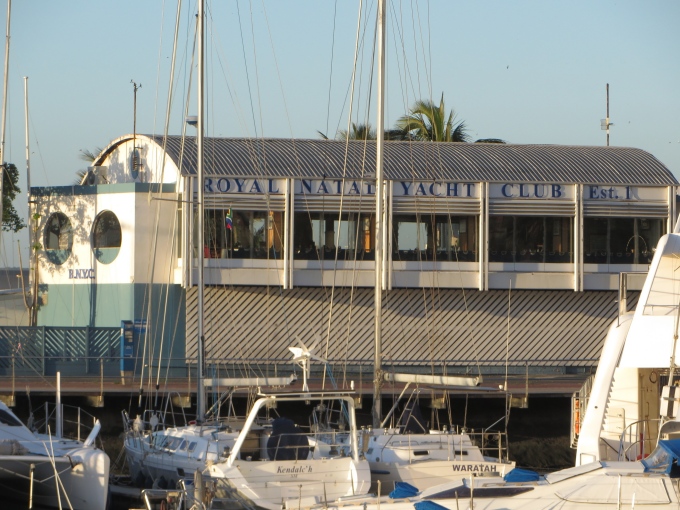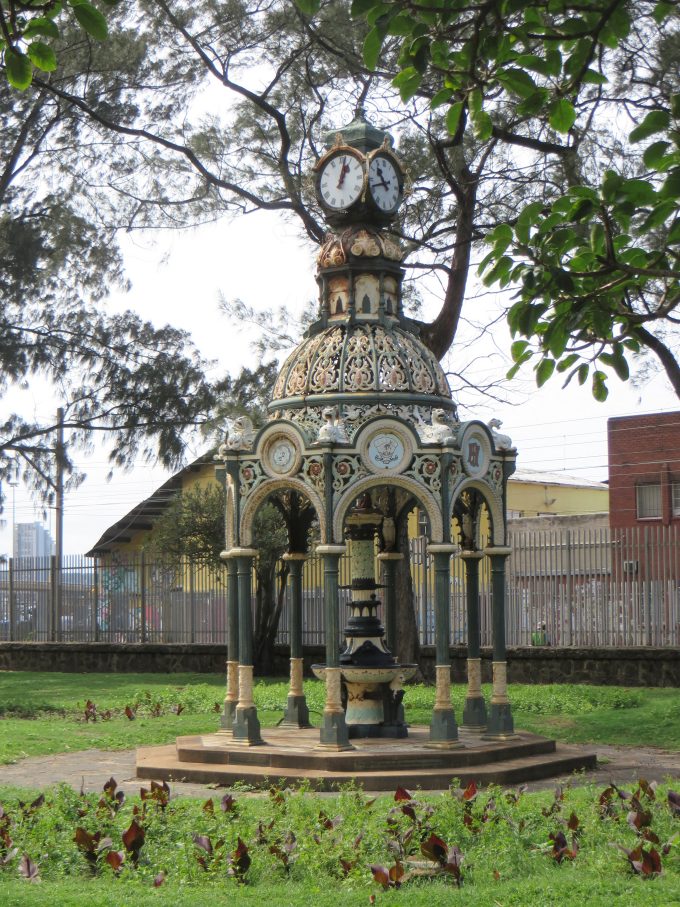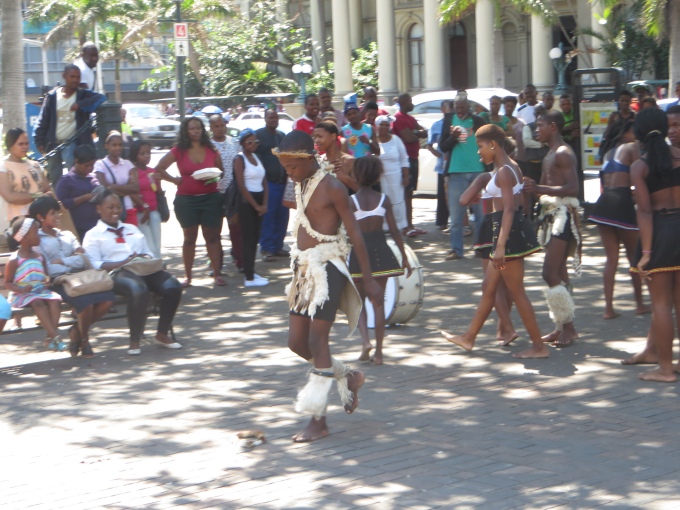First Impressions - Durban, South Africa
/Our first impressions of Durban have been positive ones. The marina is rather old and needs some attention, but it's got character. As always, visitors are berthed wherever possible and our berth happens to be near the end of a very, very long pier which requires pre-planning when scheduling the morning bathroom run. Interestingly, the marina itself does not offer any shore side amenities. Hot showers and toilets, a club house, wifi, restaurants, bar, etc. are all offered by the friendly Point Yacht Club which is adjacent to the marina office. We received two weeks free membership at the PYC and can use all their facilities and then there's a small weekly fee per person after that.

Just across the way is the Royal Natal Yacht Club which has a large clubhouse and restaurant … and free wifi. Established in 1858, it's the oldest yacht club in Africa and the fifth oldest in the southern hemisphere. It's yesteryear classy, like a lodge in the Catskills, and the restaurant is more upscale.
Portugese explorer, Vasco de Gama sighted Durban's natural harbor on Christmas Eve 1497 and named it Rio de Natal (Christmas River). When the British colonized the area in 1835, they renamed it in honor of the governor, Sir Benjamin d'Urban. The Zulu call this area eThekwini, from “itheku”, meaning bay or lagoon – a reference to the harbor and the lagoon formed where the Umsundusi River meets the Indian Ocean. In 1898, the Portugese sent Durban a gift of a Victorian baroque style pavilion to commemorate the 400th anniversary of de Gama's discovery. We walked by it on the Victoria Embankment and probably would have missed it altogether had I not been on the lookout for it.
Durban is South Africa's third largest city, located in the province of Kwa-Zulu Natal (cool name, huh?). Its Port Natal is the busiest container port in Africa and considered one of the top 10 busiest container ports in the world. Based on the ship traffic we saw on our early morning approach, that's easy to believe. The city itself is a hustling, bustling city of 3.5 million, with lots of traffic, both vehicular and human. The streets are crowded. Shops are busy. Hawkers, street vendors and buskers all compete for attention. We were entertained by some Zulu street dancers on our way to finding a new mobile phone.
We're enthralled by the way women carry big parcels on their heads. They walk along casually chatting with huge bundles balanced on their heads. It's obviously an acquired skill, but they make it look so easy.
We're told that street crime is high here. Locals have all advised us to be particularly careful. Muggings, pickpocketing, and petty theft are common, so we're a bit leery of straying too far afield. Truth be told, I haven't ventured out by myself without David. But, as always in any urban environment, common sense is a must. There's exploring to do … we'll do it cautiously!





